2023 – a Year in Review
In this blog we look back at our numbers, projects and communication in 2023. We also share our plans for 2024!
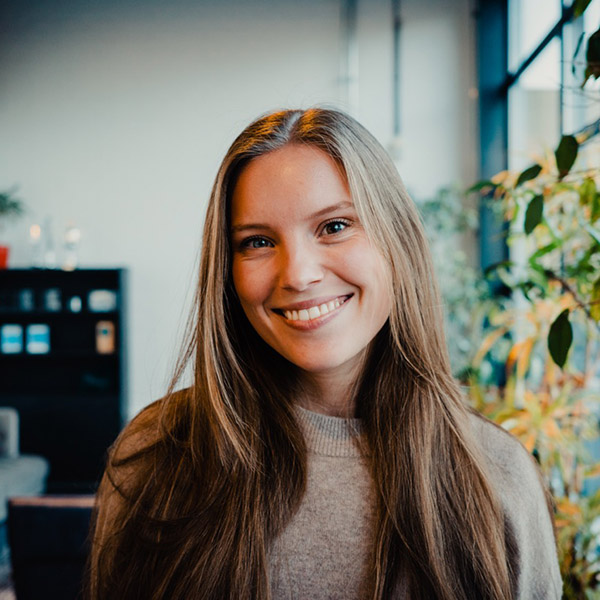
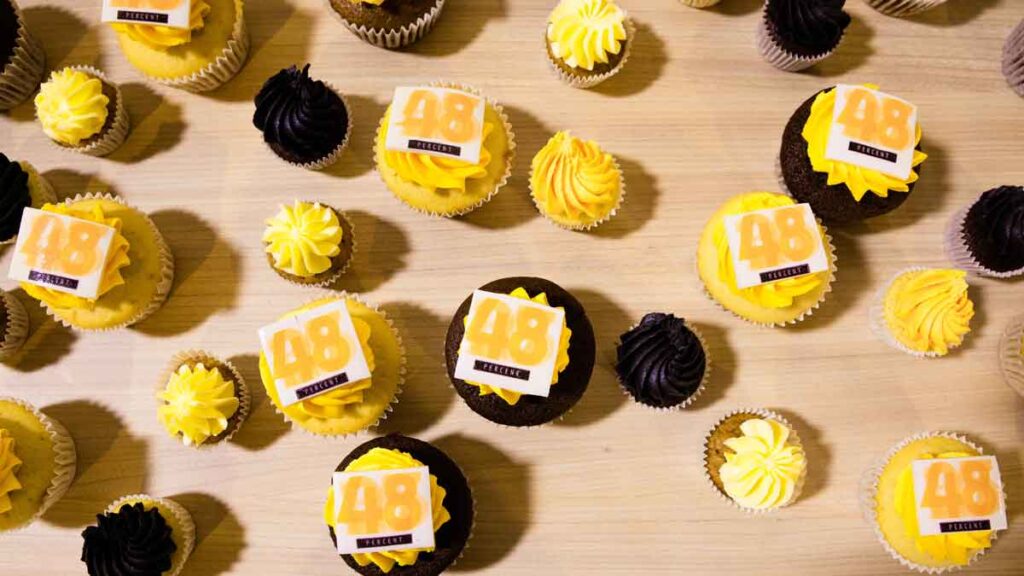
With 2023 coming to an end, we have been a foundation working to bridge the digital divide for 4 years. When we started our work, we used the phrase “everyone contributes their grain of sand” as a guide in our efforts. No matter how small or large the contribution, or in what form it is, if we all work together, we can all play our part in creating equitable access for everyone. Read along as we share some facts and information about how we as a foundation worked with our partners to strengthen digital inclusion this year.
Our year in numbers
Over the course of the year we contributed to 13 projects spread out over our 3 program lines. 8 projects contributed toward facilitating affordable access to connectivity, 3 projects contributed towards facilitating digital skills and digital literacy, and 1 project contributed towards facilitating privacy awareness.
The projects that our partners did benefitted an estimated 12,970 people and we spent €176,326.00. Looking at our cumulative numbers, we are close to having contributed €500,000, and more than 37,000 people in 14 different countries have benefitted as a result.
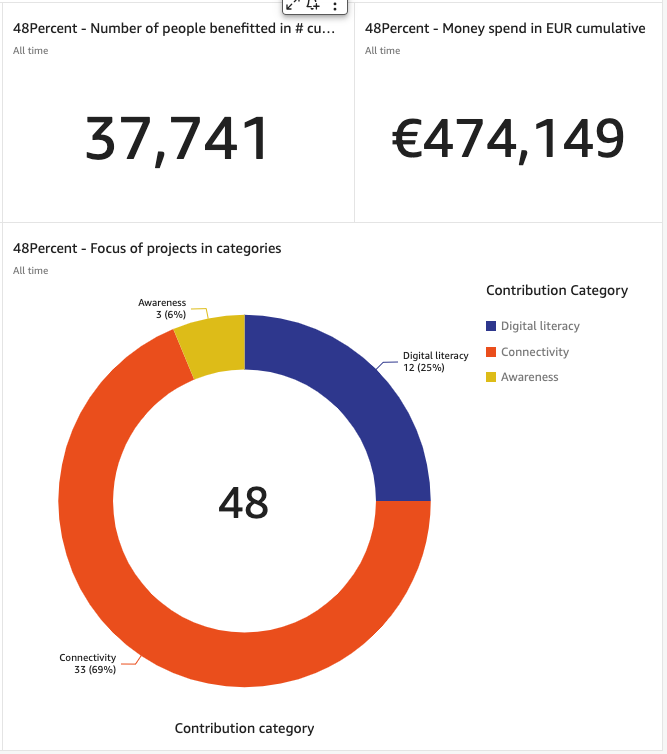
Projects in 2023
In 2023, we focused both on strengthening our existing long term partnerships, some of which we have had as long as we have been a foundation, as well as actively searching for new partners to build long term partnerships with. We were able to extend our contributions to new parts of the world, in collaboration with existing and new partners. We follow the progress of each closely by staying in regular contact with our partners through email communication or video calls. This gives us great insight into the importance of our partner’s work to bridge the digital divide.
Spotlight on online safety
When talking about the digital divide, we often think about the physical access barrier that people face. However, another and perhaps a much more extensive issue is the lack of awareness on how to stay safe while you’re online. It is something people who have grown up with the internet are continuously learning about, and with more people accessing the internet, more knowledge on the risks of being online and how to secure your own privacy online should be available.One of our new partners, Zee Tech Foundation, has spent the year working to help share more digital knowledge with young students in Bauchi state, Nigeria.
One project educated a minimum of 1500 students across northern Nigeria about online safety. By providing knowledge on how to stay safe online, they are able to reduce the risk of child abuse online, cyberbullying, exploitation, and other forms of online harassment. The students got age appropriate information sources, and learned more about how they could use their knowledge to be ambassadors for online safety within their communities.
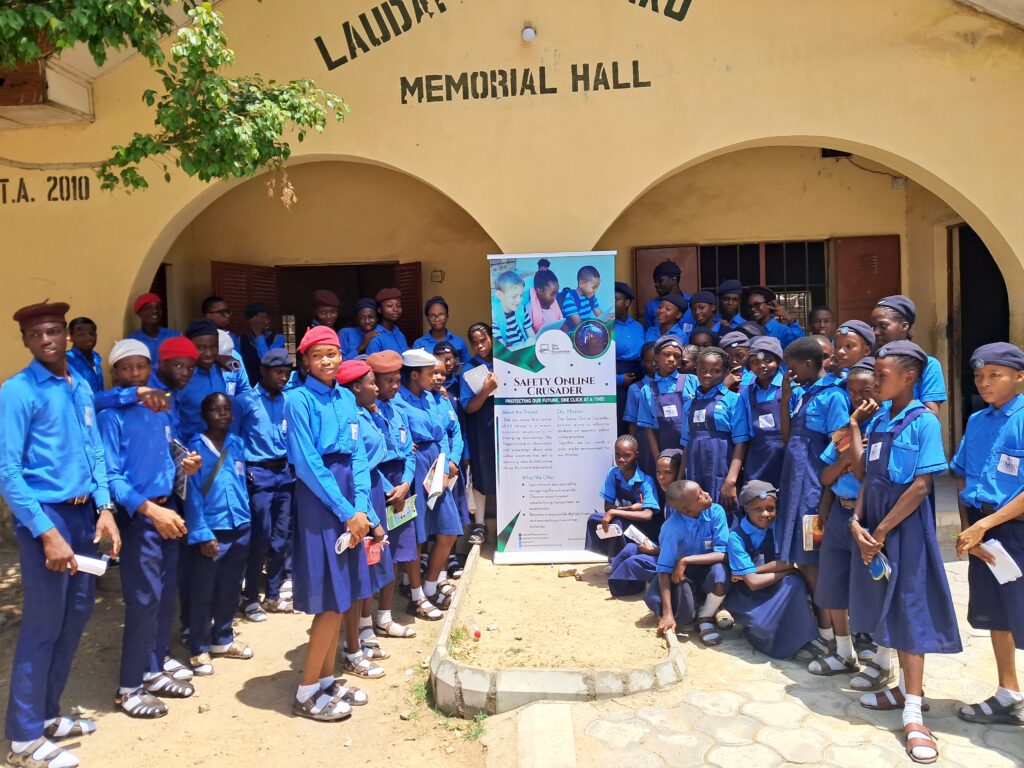
Education meets tech – weaving in digital literacy
This year many of our partners worked on educating and training people within their communities to gain more digital knowledge. Higher levels of digital literacy is important to further benefit from having internet access. It creates better economic and social opportunities, both in terms of job opportunities, checking personal finances and accessing health care services and other necessary information easily. Colnodo, an organization located in Colombia, developed training materials for the local rural population. The training enables them to connect to the network, design, establish, and manage their own communication platforms through strategies of appropriation and virtual format training. Pueblo Nuevo, also located in Colombia, provided their local indigenous community with a training that would give them the skills to implement, operate, and maintain a community fiber optic network.

Having digital skills also increases the learning opportunities for many people, given that they can get information from a wide variety of resources, and get access to more learning materials. In Nigeria, Zee Tech Foundation knows the value the internet can bring to young students in their educational journey. This is why we collaborated with them to set up an ICT center for students, so that they can utilize the internet for educational resources and online learning tools.
Fantsuam Foundation also recognizes this challenge, and therefore started a project in which they provide both staff and detainees in the Kafanchan correctional center in Nigeria with digital literacy skills. This way, the detainees can transition more smoothly back into society. The project’s long term outlook is to reduce re-offending by encouraging positive behavioral changes and intellectual stimulation.
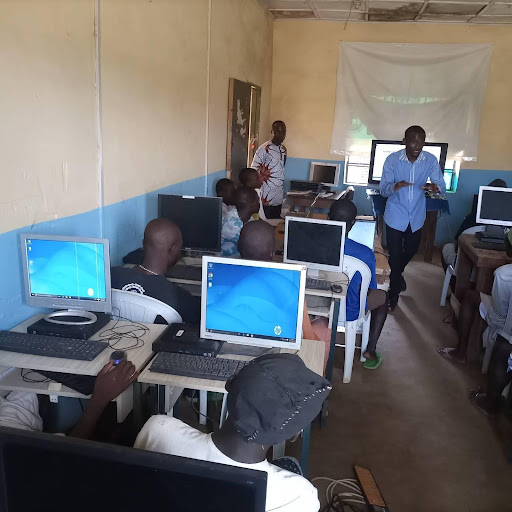
Strengthening (existing) internet infrastructure for inclusive connectivity
Throughout 2023, we saw that building and strengthening digital infrastructure also allowed our partners to raise the levels of digital knowledge in the communities they worked in. Establishing and sustaining essential infrastructure to ensure internet accessibility can be costly and challenging. Having the right materials, knowledge about the infrastructure, and maintenance all come with their own challenges. Without regular maintenance, the overall sustainability of the network is not in place. In 2023, BOSCO Uganda started their third phase in upgrading and extending the community network in the Acholi Sub-region of Northern Uganda. The project not only brings internet access to the area, but also ensures that the internet is affordable for the people that make use of it. Part of this phase is also to provide capacity building for locals so that they can oversee the daily operations of the ICT centers that were refurbished at an earlier phase.
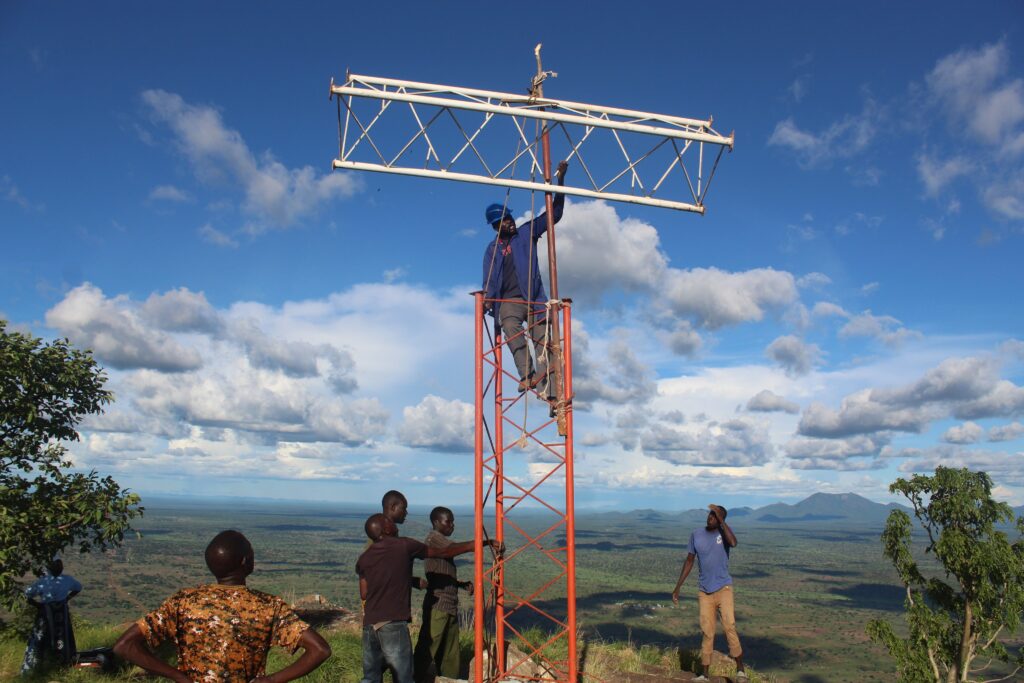
Similarly, we contributed to ISOC Kenya’s efforts, who have installed community network nodes in public schools, institutions, and health care centers to provide low-cost and secure connectivity to underserved communities in Ugunja, Kenya. Part of this project is also to train people through a net wardens training program. This will give them the knowledge on how to maintain the network as well as make sure users are using the internet safely.
Another example of how knowledge meets infrastructure is the work our partner Isizwe is doing in Mpophomeni, South Africa. This was the 3rd and final year of our collaboration to create a self-sustaining community network. This year, they saw that by empowering different users to build and share their skills to maintain the network, they could reach sustainability faster. They also saw the opportunity to expand the existing community network to several schools in Mpophomeni. By doing this, they were able to increase the use of the internet in school settings, offer free internet to students at any access point in the community, and also encourage the students’ families to use the internet as well.
In Malawi, unconnected.org connected a school to the internet and set up a computer lab with laptops ready for the students when they came back from their summer breaks. Not only did the students get the necessary hardware, they also received training in Microsoft Office, learning how to create a document, excel spreadsheets and setting up their email accounts.
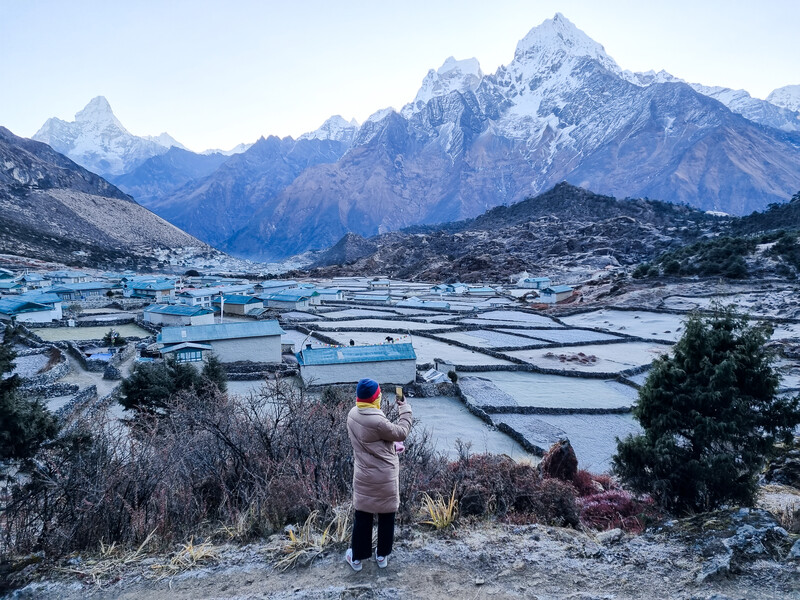
Digital Inclusion Pilot Project in the Netherlands
As well as contributing to projects outside of the Netherlands, we’ve also been involved in a pilot project close to home. In Westerkwartier municipality, we’ve teamed up with Alliantie Digitaal Samenleven and Freedom Internet to provide 50 households with the internet, laptops, and training to be able to operate the internet.
While the Netherlands overall has good internet infrastructure and great connection, and most people rely on it in their everyday lives to access necessary information and service, or do their jobs, people still experience issues with affordability and digital skills.
We are working with multiple partners to test a regional approach to equitable access to connectivity. The project is currently in the starting phase, and we’re excited to see how it will develop in 2024.
Increasing awareness on the digital divide
In 2023, we focused on sharing posts on our socials that would be educational, and could be shared widely among our online following. One of our series was 10 tips for being safe online, in which we shared one post a week giving advice on how you can increase your online safety. After having shared the tips on our socials, we created a blog post with all the tips, so that it could be easily found and shared further.
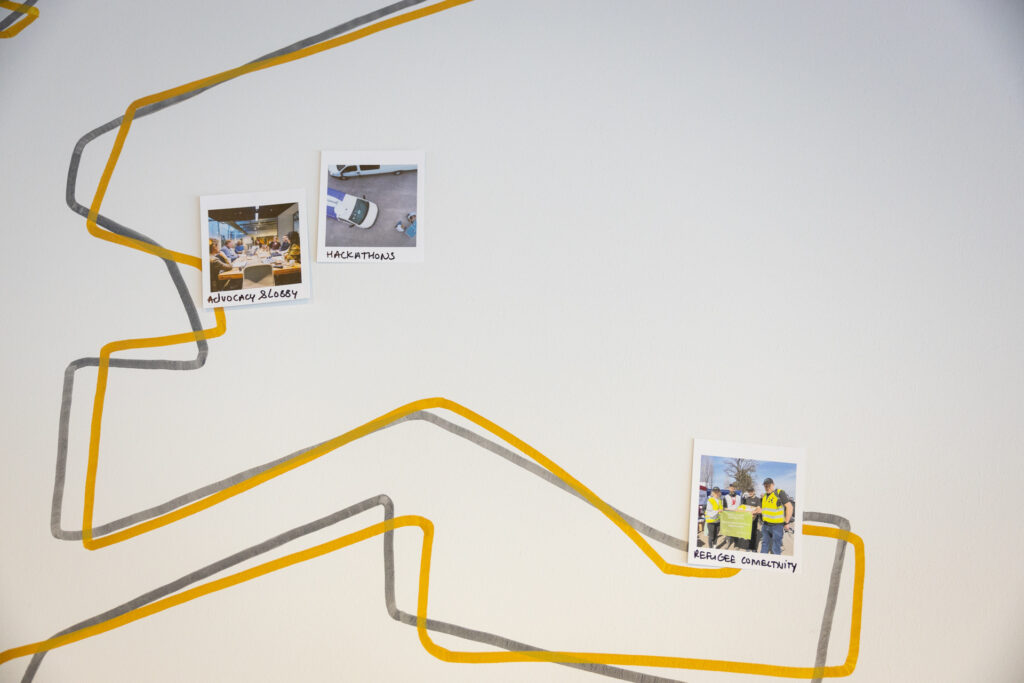
Secondly, we shared about the connectivity status within the different regions of the world. We highlighted the challenges, development and improvements each region faces. We found similarities among different regions in the world, and we were also able to highlight the work our partners do to address these challenges.
Our plans for 2024
In 2024 we want to connect our network, not only to the internet but also to each other. If we learned anything it is that our partners can learn a lot from each other in their various approaches to facilitating connectivity. Our projects will continue to reflect our three program lines. By doing projects that fit within these three program lines, we believe that we can have the most impact through our work.
Throughout the coming year we want to share even more information about the digital divide and why it is important to expand/bring connectivity everywhere. You can expect to see this both in the various series we will do on our social channels, and the blogs that will be published on our website.
We look forward to working with our current partners, as well as any new partners that we get in touch with this year. If you have a project idea, feel free to contact us through email or send in a project proposal through our contact form on the website!